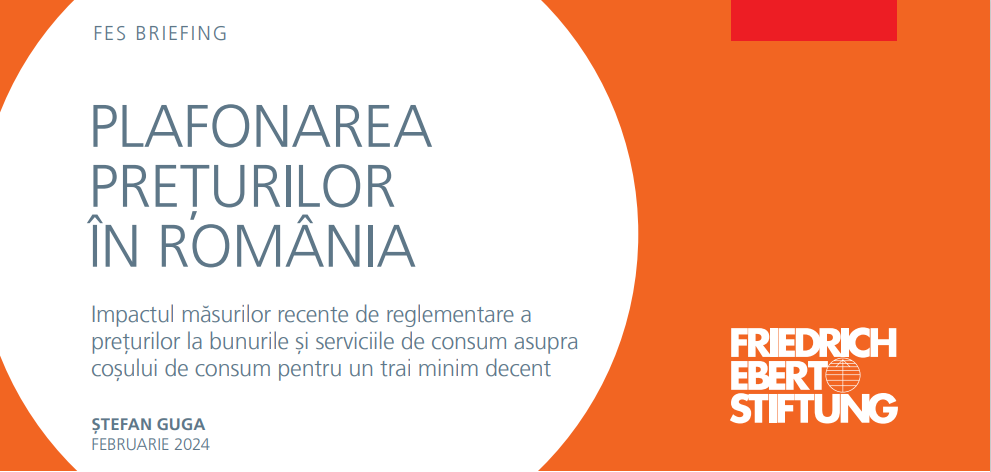Price caps in Romania. What was the impact of the government's measures?

Savings to the household budget were higher on energy than on food. In the absence of the energy price cap measures, the total value of the minimum basket for a decent living would have increased by 10.4%, as household expenditure increased the need for the savings fund. At the same time, the estimated impact of capping trade surcharges on food was 0.6% of the value of the basket, according to calculations made by the expert Stefan Guga, the author of the study.
The energy and food price regulations came at a time when rising prices threaten to disastrously affect the living standards of Romania's population, with inflation rising to unprecedented levels in the last two decades, reaching 16.8% in November 2022. In 2023, inflation fell slightly further to 6.6% in December 2023, according to the National Institute of Statistics.
The government's reaction was in line with that of other national authorities in the European Union. In autumn 2021 and early 2022, all EU governments adopted regulations aimed at reducing energy inflation (gas, electricity, heat): among other things, tax cuts (including VAT), consumer price caps, subsidies for vulnerable groups, windfall profit taxation have become almost universal across the EU (and are still in place, since the measures remain in force). In Romania, OUG 27/2022 capped consumer prices for gas and electricity from April 2022, and was subsequently extended and supplemented by other legislation.
By the beginning of 2023, the focus had already mainly shifted to food prices, which had already been rising continuously for two years and had become the main driver of overall inflation. Food price regulation was on the agenda of several European governments, although few (Croatia and Hungary) eventually opted explicitly for energy-like price caps. Some countries opted for indirect limits on retailers' mark-ups (Greece, Romania), VAT reductions (Poland, Portugal, Spain), or pressure on retailers (France, Sweden). In Romania, OUG 67/2023 limited commercial add-ons charged by food processors, distributors and retailers for some basic products starting from the end of July 2023, and was subsequently extended and supplemented by other legislation - OUG 89/2023 extended the list of products with regulated prices.
The study on the impact of measures regulating energy and food prices analysed the implications for the value of the consumption basket for a decent minimum living, as defined in Law 174/2020 and based on the analyses published until now by Friedrich Ebert Stiftung Romania. The impact was calculated based on the consumption basket value calculation for December 2023, the last month for which data are available.
Even with the measures to regulate energy and food prices, the consumption basket for a decent minimum living is today almost 40% more expensive than three years ago. The increase is massive for such a short period of time and clearly shows the increasing difficulties most people have faced during this period and are still facing today.
The study is available online (in Romanian): https://library.fes.de/pdf-files/bueros/bukarest/21029.pdf
Friedrich-Ebert-Stiftung
Romania Office
Str. Emanoil Porumbaru 21
Apartment 3
RO-011421 Bucuresti Sector 1
Romania


